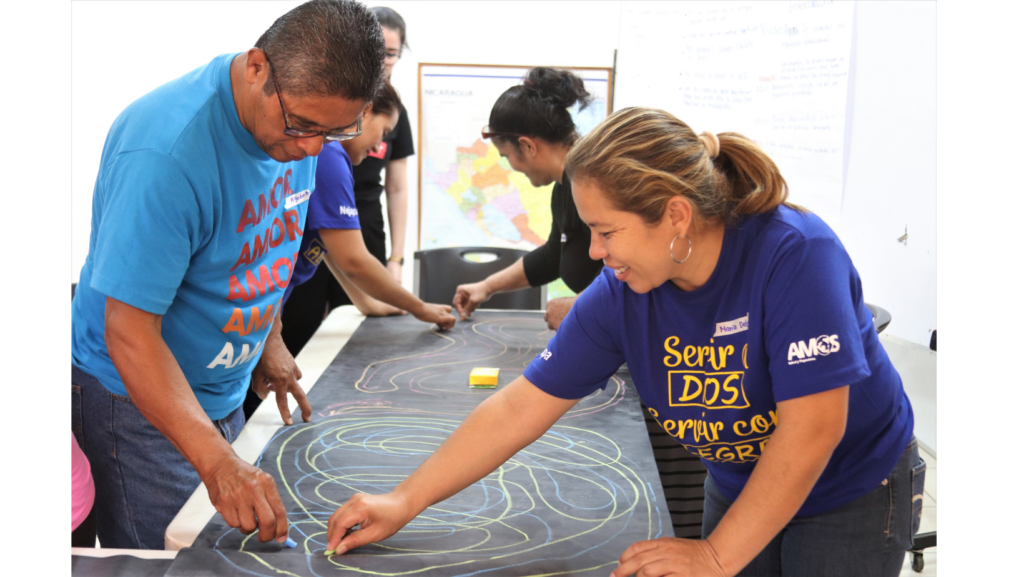
Since the beginning of AMOS, our co-founder, late Dr. Gustavo Parajón, implemented practices to promote peace and respect not only among our staff, but also among the communities we serve.
Over the past years, AMOS has been blessed to partner with experts on Restorative Practices, such as Miguel Tello, Latin American representative for the Training and Consulting Division of the International Institute of Restorative Practices (IIRP), and Mylinda Baits, an International Ministries missionary who works as a global consultant in the topic and helps people heal through the use of art and creative expressions.
After learning about these practices, there was a clear need to have someone directly working with our team and community health volunteers to apply these techniques. That’s how Dr. Carlos Escobar came to be AMOS Restorative Practices Officer.
Today, we want to introduce you to Dr. Carlos and share about this initiative for the AMOS staff and the communities you help us serve.
“My name is Carlos Escobar. I’m a Nicaraguan doctor with 25 years of experience in community health. Throughout my career, I have had the opportunity to participate in different restorative practices and psychosocial support activities, including helping victims of forced displacement in Colombia (2003-2006), the place where I first learned about the implementation of “Circles of Peace” as a restorative practice in conflict zones.”
– Dr. Carlos Escobar
Dr. Carlos Escobar has been trained on restorative practices since 2014 by the Training and Consulting Division of the International Institute of Restorative Practices (IIRP). The Latin American representative of this institution, Mr. Miguel Tello, has not only been his teacher, but also a mentor for Dr. Carlos throughout the last 8 years.
“Without realizing it, I was being called by God to insert myself with great passion in the work model of AMOS, which I consider to be firm in its commitment to forge a better world, contributing to the construction of peace and justice, from a development perspective with a restorative approach,” shares Dr. Carlos.
“I have participated in training Health Promoters so that they acquire skills to facilitate circles of dialogue (conflict prevention circles) in their communities. The implementation of the dialogue circles has helped to know the level of motivation that members of the Health Committee have, to provide emotional support, and for decision-making processes in the communities. The use of circles as a restorative practice at the community level has become an essential part of the empowerment process that is moving forward little by little in the communities.“
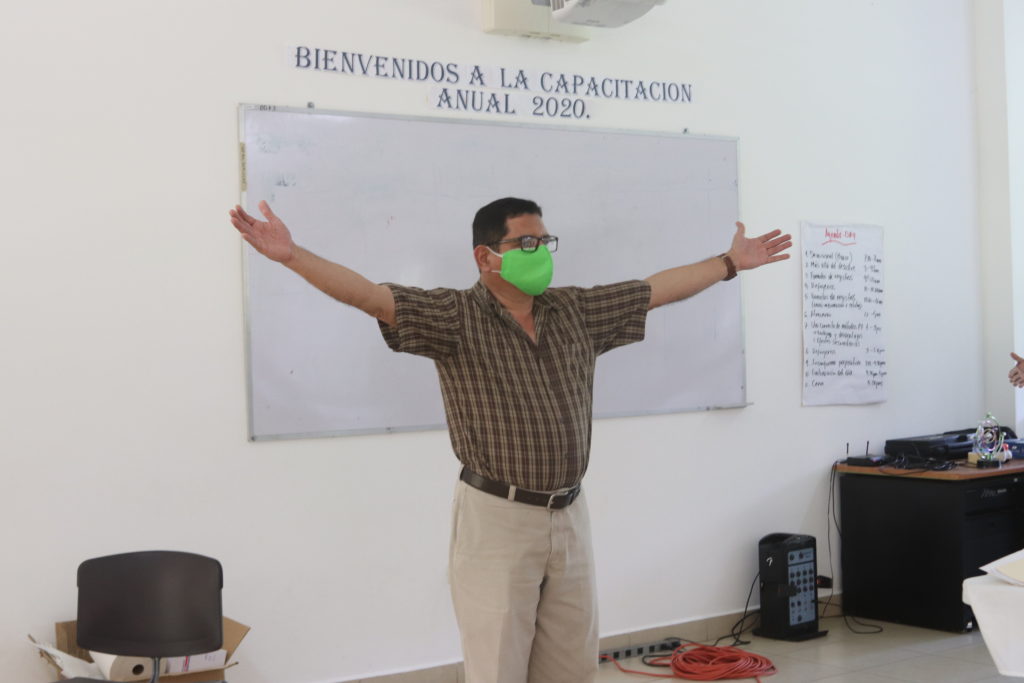
Dr. Carlos Escobar leading a restorative practices session. 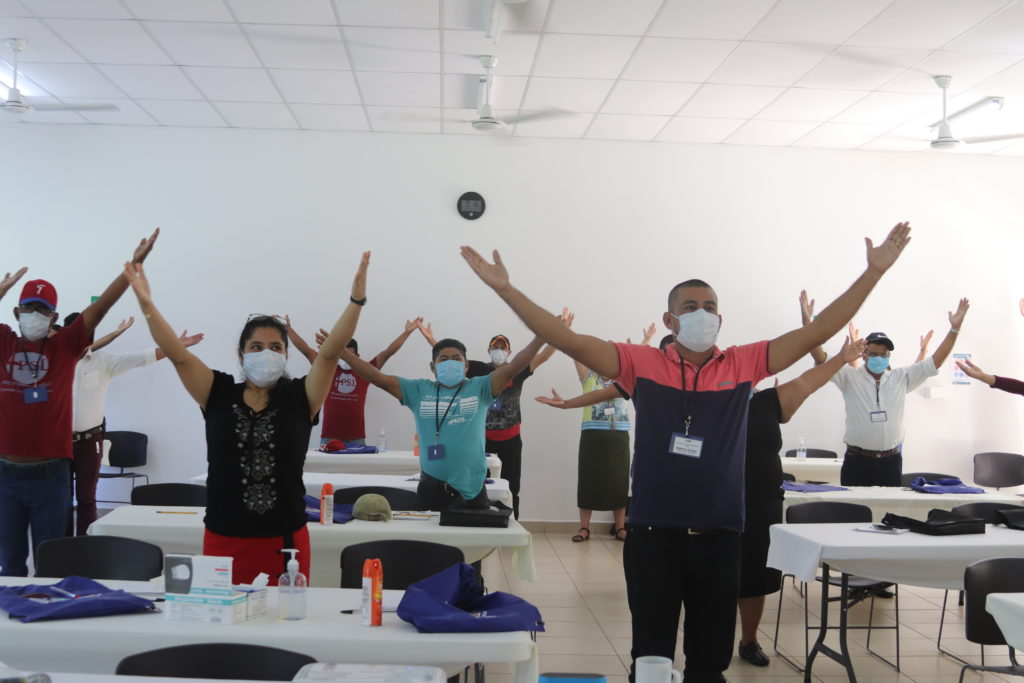
Health Promoters during Dr. Carlos’ session.
AMOS has implemented restorative practices during the civil unrest in Nicaragua in 2018, after natural disasters, such as hurricanes, and recently with the COVID-19 pandemic, helping our staff and community health volunteers cope, manage their emotions, and build resilience to help themselves as well as others.
“As part of our goal to create a positive environment at AMOS, we have trained eight facilitators to expand our reach among the staff. They hold restorative sessions periodically with their peers, including what we call “the window of tolerance”.
“The window of tolerance is a very useful technique because it allows people to identify and manage their levels of emotional activation. Restorative practices like this help to prevent and address conflict situations, and to strengthen the social connections at the institutional and community levels.”
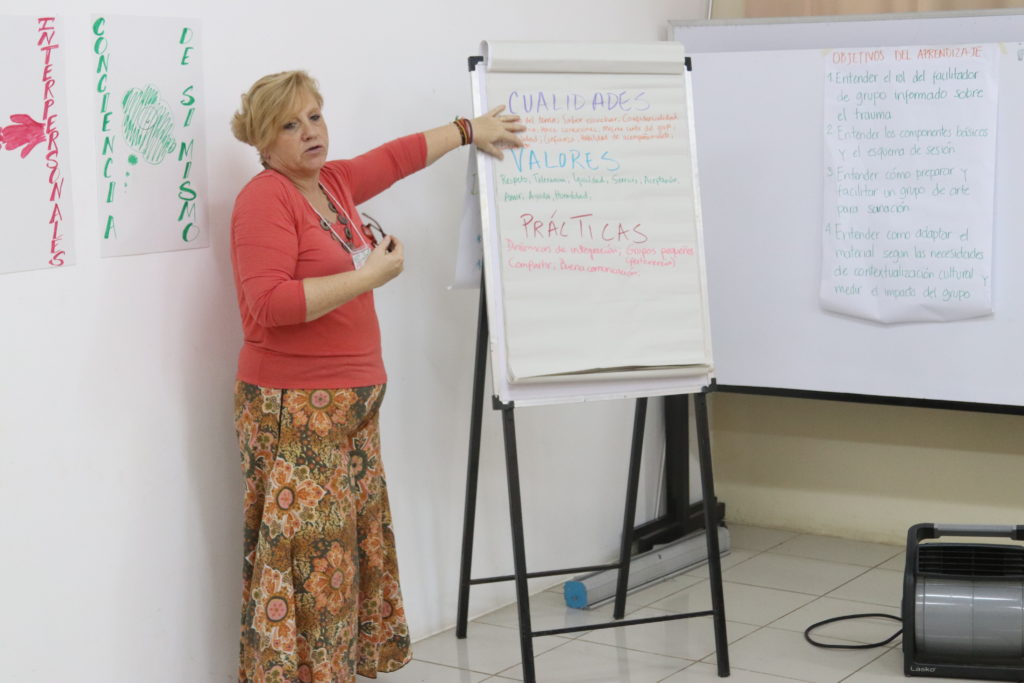
Mylinda Baits, International Ministries missionary. 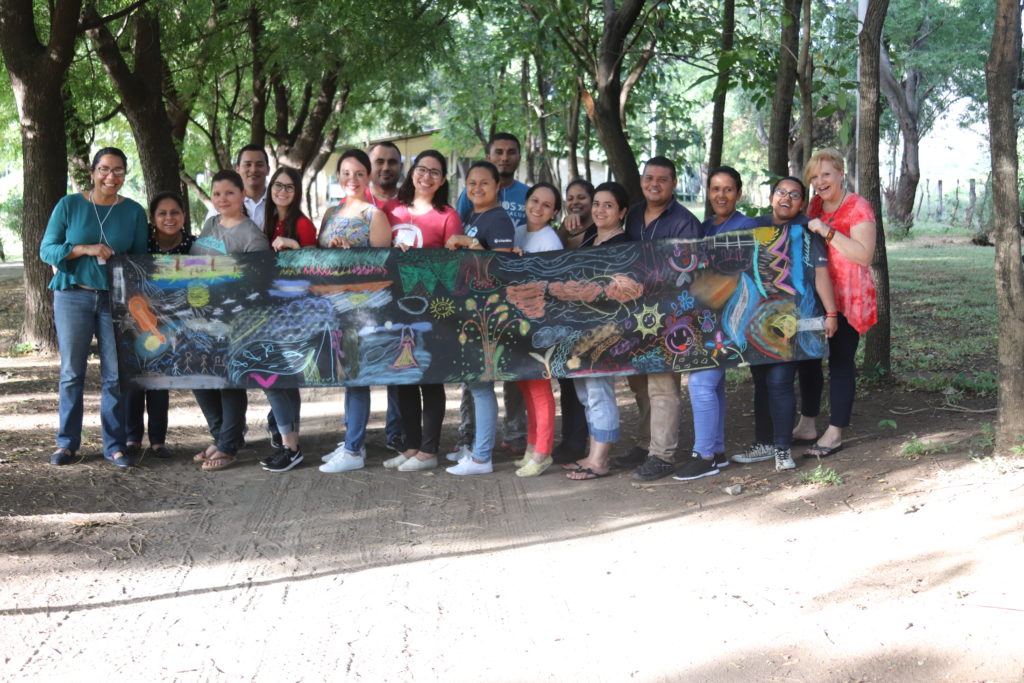
AMOS staff after a session of restorative practices.
“Implementing a restorative approach at the institutional and community levels means continuing to work with AMOS for the construction of a more just, equitable and peaceful society,” Dr. Carlos explains. “It is necessary to generate new knowledge, new practices, and we have seen this can be achieved through the implementation of restorative practices.”
